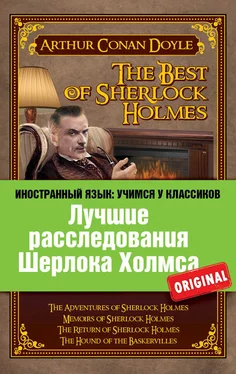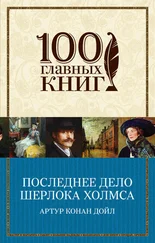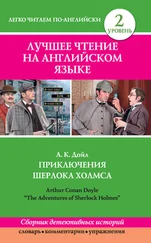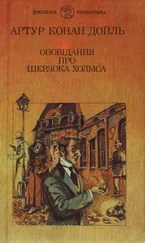shrewd – here: characterized by keen awareness, sharp intelligence, and often a sense of the practical; in its negative meaning: tricky and cunning.
of the long s and the short – the long, medial or descending s (ſ) is a form of the minuscule letter s, derived from Roman handwriting, used in the middle or in the beginning of a word, or in double s occurrences. The modern letterform was called the terminal, round, or short s. It fell out of use in Britain between 1795 and 1810, due to being confused with minuscule f.
to be circumspectmeans to think carefully about possible risks before doing or saying something
undoing – here: the downfall of family
The Great Rebellionrefers to the Irish Rebellion of October 23, 1641, aimed to overthrow English authorities while massacring English and Scottish Protestants settled in Ulster. After several months of violent chaos the Irish Catholic upper classes and clergy formed the Catholic Confederation (summer of 1642). Ulster was reclaimed for UK by Oliver Cromwell’s New Model Army in 1650s.
Lord Clarendon – Edward Hyde, 1st Earl of Clarendon (1609–1674), English historian and statesman. During the events of the Rebellion and English Civil Wars he was an informal advisor to the King Charles I. Lord Clarendon is the author of the “History of the Rebellion and Civil Wars in England.”
Manor – in the Middle Ages “manor” was a legal term denominating an estate in land that entiled a right to hold a court. In the 19 thcentury “manor” became the name for an old house of a landlord with a great area of land around it.
By-wordis one that personifies a type, especially ill-known or notorious.
Yeomanrefers chiefly to a free man owning his farm, especially from in the 16–17 thcenturies.
Michaelmasis the feast of Saint Michael the Archangel, usually September, 29.
betwixt – between ( archaic )
hath a devil – possessed by evil spirits; hath is the archaic form of “has.”
wench – girl ( archaic , often derogatory)
Liberal candidate – candidate from the Liberal party, one of the main political parties in the UK; during the 19 thcentury the Liberal Party supported laissez-faire economic policies, such as free trade and minimal government interference in the economy. The Liberal Party favoured social reform, personal liberty, reducing the powers of the Crown and the Church of England and an extension of the electoral franchise.
nouveaux riches – the new rich ( French ). Nouveau rich is a person who has recently become rich (unlike those having hereditary fortune) and who likes to spend a lot of money. In the 19 thcentury these were people who would be referred to as “success stories” in the XX century, raising money on some newly-invented industries or by trade and, of course, considered opportunists or foul-players.
Frankland, of Lafter Hall, and Mr. Stapleton – both surnames have some meaning: Frankland could mean “one who tells his opinion outright, frank person.” Stapleton sounds like “to staple,” that is “to pin down insects.”
gig(aka chaise aka chair) is a light 2-wheeled one-horse carriage.
wicket gateis a small gate or door (especially one that is part of a larger door).
wire – here: a telegram
parish vestryis a local church counsil.
shag tobacco(aka rolling tobacco or loose tobacco) is fine-cut tobacco used for self-made cigarettes made by rolling the tobacco into rolling paper or injecting it into filter tubes.
Baronetis the sixth-degree nobility title, put between the baron (which is a peer, a full-fledged noble, able to enter the House of Lords in the Parliament, unlike baronet) and the knight (which is still considered a commoner), thus being a noble and a commoner at the same time, and can be a tenant of an estate. Note that a baronet is not the heir to a baron, but a different title.
hobby – the word (nowadays it means “a leisure activity”) originates from XIX centuries idiom “to ride one’s favourite hobbyhorse,” which meant unnecessary entertainment, like child’s rocking on one’s wooden horse – hobbyhorse. The naming came from nickname “hoby” referring to living ponies and farm horses.
gum – gum arabic, a natural gum made of hardened sap taken from Acacia senegal and Acacia seyal (both are species of the acacia tree). In the 19 thcentury it was exported mostly from British trading colonies in modern Senegal and Mauritania.
“Dime novel”is a term supposedly originated from the first book in Beadle & Adam’s Beadle’s Dime Novel series (June 9, 1860). The name has become a catch-all term for the U.S. popular fiction. “Dime novels” are stories about dangerous adventures, detective fiction and spy stories.
The coal ownersdid not own the coal, but the equipment and buildings used in mining.
A foilis a light fencing sword having usually a circular guard and flexible blade of rectangular section tapering to a blunted point.
lady of attractions= attractive lady ( archaic )
The Museum of the College of Surgeonsis a real museum still opened to the public. Its collections include preserved specimens, fossils, medical instruments, etc.
Cobis a stocky short-legged riding horse.
Sinistermeans “threatening, ill-promising.” The word comes from Latin “sinister” meaning “left” or “left-hand,” which was considered to be unlucky.
Hart’s-tongue fernis a type of fern reminiscent of a deer’s tongue (hart is an old word for deer).
Brackenis a fern with fronds that may reach as high as 15 ft.
Scrub oakis a shrubby and small-sized oak.
Princetown – Her/His Majesty Prison Dartmoor is a men’s prison located in Princetown. It was opened in 1809 to house prisoners of the Napoleonic Wars. In the second part of the 19 thcentury it became a civil prison. Due to notorious conditions the mortality rate was considerably high and escapes were often.
Читать дальше
Конец ознакомительного отрывка
Купить книгу











